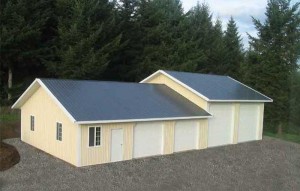Contractor Contracts
Good fences make for good neighbors.
Good contracts make for good relationships between a builder and the building owner.
 Think about it – a contractor without a contract is just a worker and his or her word. Even the most honest person would be hard-pressed to keep track of all the conversations which go into planning for the average pole building construction project. This is where a good contract comes in. Many a conflict can be avoided if both parties can simply consult the contract when there is a misunderstanding on either side. Contracts can save relationships.
Think about it – a contractor without a contract is just a worker and his or her word. Even the most honest person would be hard-pressed to keep track of all the conversations which go into planning for the average pole building construction project. This is where a good contract comes in. Many a conflict can be avoided if both parties can simply consult the contract when there is a misunderstanding on either side. Contracts can save relationships.
These tips, while just a starting point, will get all parties thinking about the most critical thing to have in hand before work starts. This is written for the benefit of builders, as much as their customers.
A contract protects all the parties involved. Just because preconstruction conversations went great, and even though the work is only supposed to take two weeks, everyone will regret not having a contract when one of you forgets half of the great conversations and the work isn’t completed after two months.
Contact information is crucial. All parties should have complete addresses (both physical and mailing), as well as all contact information (home phone, office phone, cell phone and email addresses) listed on the agreement. Should either party have to track down the other after work has begun, nobody is being found at a P.O. Box.
While in many localities getting a contractor’s license may be more a matter of writing a check than verifying skill, any contractor’s registration numbers required for the work being done need to be on the agreement. A license may mean a contractor passed the required exams, or it may just mean the state knows where to find him to collect taxes. But it also means the contractor has done the paperwork and is playing by the rules.
Injuries can occur on a construction site. If a contractor does not have the proper insurance, the property owner may be held liable. Check with your locality for the proper amount of liability insurance, and if the contractor has employees, confirm he carries worker’s compensation insurance.
Details, details, details. There are lots of details to “get right” even in a simple construction project, so make sure absolutely everything is written down before work begins. Assuming the pole building kit package has been purchased directly from the manufacturer, the contract should reference the structural drawings, including the date of the plans and any other original identifiers.
This is construction – delays happen. Sometimes projects take longer than predicted for many legitimate reasons – some caused by the client and some outside the contractor’s control. Put the expected project duration in writing (and both parties need to be realistic when doing so). The builder may not be working on the building every day, which is not important if the project is completed on time. Having a timeline helps calm the nerves when progress hits a slow spot.
A good contract should include a list of exclusions. In the case of post frame building construction, digging the holes is always an “unknown”. Address the subject up front and in writing.
Builders work hard, they deserve to be paid promptly. On the flip side, the building owner has worked hard for his or her money, sand should not have to pay for substantially more than the work which as been completed. At the time a contract is signed, I would not find it unreasonable for the contractor to be paid 10% or $1000 up front, as a financial commitment but no more to limit any potential issues. If the building will be completed within a week, the only other payment should be at completion. For a two week project, a 40-50% progress payment after the framing inspection has been passed is reasonable. For longer duration projects – agree upon milestones which trigger payments being due.
Any workmanship warranty provided by the builder needs to be in writing. Many states require contractors to warrant their work for a minimum of one year. On the other side of the coin, be respectful of the contractor’s time and work. Carefully inspect and “sign off” the building is completed as desired upon the builder stating “it’s done”. If there are items to fix or have not been completed to your satisfaction – get them in writing. Calling 3 or4 years later claiming the building “was never right” is an insult…to both of you.
 It’s always best to check with your local contractor’s board and insurance company to make sure you are following all local, state and federal requirements before you start the project.
It’s always best to check with your local contractor’s board and insurance company to make sure you are following all local, state and federal requirements before you start the project.





